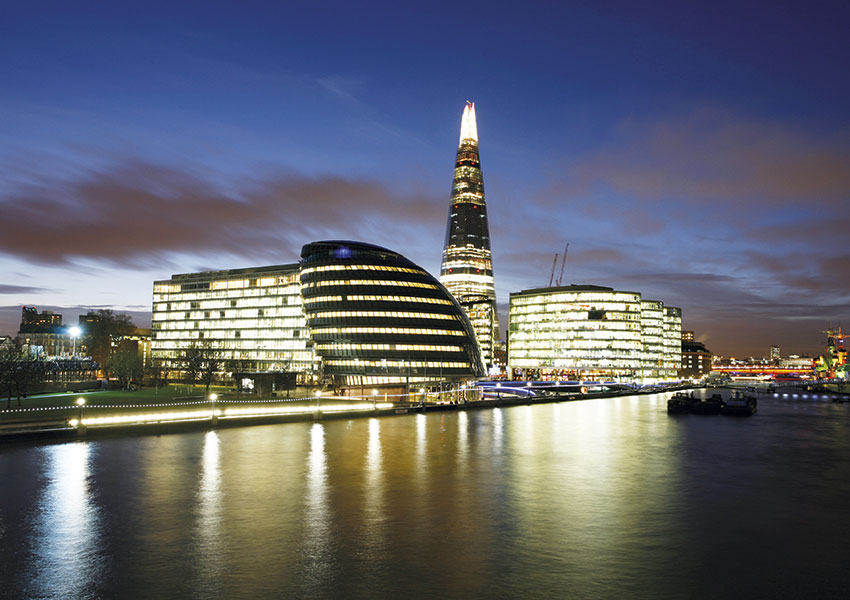Qatar’s hydrocarbon-generated wealth, regulatory environment and relatively unsaturated market, has portfolio managers turning their backs on Dubai in favour of Doha, while local asset management firms continue to invest billions in Europe, the US and beyond

With a total private wealth pool of $3 trillion, the Gulf has become an increasingly popular destination for asset management companies and investment banks. Dubai has served as the Gulf Cooperation Council’s financial hub for many years, but it now faces competition from other Gulf cities such as the Qatari capital of Doha to attract financial services firms and asset managers.
Oil and gas-generated riches have helped Qatar to have the highest GDP-per-capita income in the world. Amongst the population of 2.1 million, more than 80% of which are expatriate workers, there are estimated to be 300 “ultra-high-net worth” individuals worth at least $30 million, including 12 billionaires. The tiny emirate has the third highest concentration of millionaires in the world after Singapore and Switzerland; nearly 50,000 households hold private wealth of at least $1 million.
Attracted by Qatar’s wealth, a regulatory environment on par with the UK, an attractive tax regime and a relatively unsaturated market, portfolio managers are turning their backs on Dubai in favour of the Qatar Financial Centre (QFC) in Doha. Global index compiler MSCI upgraded Qatar to emerging market status in May 2014; and CEO of the QFC, Shashank Srivastava has said that “Qatar is one of the very few countries that can offer emerging-market returns at developed-market risk levels.”
In 2012, Barclays became the first international bank to have a sizable fund management operation in the emirate after it signed an agreement with the Qatar Asset Management Company to co-invest $250 million in the portfolio of Barclays Natural Resource Investments.
Now Barclays is one of a number of UK financial services firms to have a regional HQ in Doha. Amongst them is AES, an asset management company which specialises in serving Qatar’s wealthy foreign workers. With such a high density of expats looking for guidance on investing some of their enormous tax free salaries, the draw of Doha for companies such as AES is too big to ignore.
“Qatar has potential because of the amount of expatriate and contracted wealth that is accumulated here. You have got a population in excess of 2.1 million, of which the local population is somewhere in the region of 300,000. That gives huge opportunity of capturing investment wealth from all the other parties that are here,” says Rupert Bastick, General Manager of AES International Qatar.
“Given that we practice proper financial services with UK exported best practice, we thought that this was a very good and viable opportunity,” he adds. “So therefore the amount of potential clients that would be available was the biggest factor for us. It was a good business opportunity.”
While British companies such as AES serve wealthy expats in Qatar looking for an investment company adhering to high UK standards, local bank QInvest, in which the Qatari Investment Bank is the largest shareholder, has helped rich Qataris to make billions of dollars of Sharia-compliant investments in Europe and the US.
From Harrods to The Shard, Qatari investment in London is well documented. QInvest was part of the consortium of Qatari banks that developed The Shard, but it has since sold its stake in Europe’s second tallest building. The bank’s other high-profile European purchases include several industrial property and hotel assets in Paris.
In 2013, QInvest announced that it would be refocusing its attention from an oversaturated European market to the US, while at the same time, streamlining its business into three divisions: investment banking, principal investments and asset management. Since then the bank has bought a number of properties in Manhattan, including a retail podium in the Golden Triangle of the upmarket New York borough.
The European Central Bank’s quantitative easing programme – together with a weak euro and low oil prices – has however compelled QInvest to focus attention in Europe once again. In January it announced a partnership with Pioneer Investments, a management firm with more than $246 billion in assets, to create a Sharia-compliant fund that will be used to invest in European blue-chip, mid and large-cap stocks.
Another local asset management firm that has earned the respect of investors and industry peers both in Qatar and the region is Amwal. Wholly owned by Sheikha Hanadi bint Nasser Al Thani, one of Qatar’s most successful businesswomen, Amwal was Qatar’s first regulated investment company. In November, it was named “Best Asset Manager” in Qatar by EMEA Finance for the fourth consecutive year, and according to the CEO, it is the only asset manager in Qatar whose fund, the Qatar Gate Fund, has outperformed the Qatar Exchange Price Index every calendar year since 2006.
Qatari wealth, as well as investment in large-scale infrastructure projects in the buildup to the 2022 FIFA World Cup, will continue to be a big draw for both local and foreign financial services firms. While renowned asset managers such as AES thrive off the market of wealthy expats, local companies such as Amwal and QInvest will continue to shape future investments in the Qatar, Europe, America and beyond.
0 COMMENTS